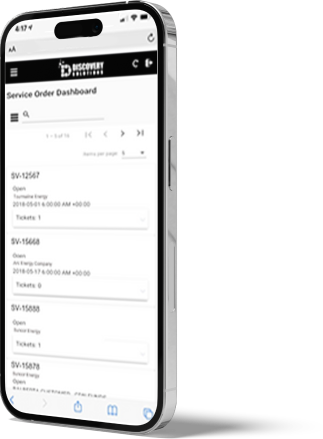What is ERP (Enterprise Resource Planning)?



What is ERP(Enterprise Resource Planning)?
The term "ERP" or Enterprise Resource Planning has become a buzzword, representing a pivotal technological solution that reshapes the way organizations manage their resources and operations. As businesses strive for efficiency, integration, and agility, ERP emerges as a game-changer. In this blog, we'll unravel the intricacies of ERP, exploring its definition, core functionalities, benefits, and its transformative impact on diverse industries.
Defining ERP: A Holistic Approach to Business Management
Enterprise Resource Planning, commonly known as ERP, refers to a suite of integrated software applications designed to facilitate seamless management of an organization's core business processes. This encompassing approach ensures that various departments—such as finance, human resources, supply chain, manufacturing, and more—operate collaboratively and share data in real-time. ERP systems act as a centralized hub, streamlining information flow and providing a unified platform for decision-makers to access critical data.
Key Components of ERP
1. Financial Management:
· Core Accounting: ERP systems excel in fundamental accounting functions, managing ledgers, financial reporting, and ensuring compliance.
· Budgeting and Forecasting: Robust ERP financial modules assist organizations in creating budgets, forecasting financial trends, and monitoring actual performance against projections.
· Asset Management: ERP facilitates the tracking and management of assets, providing insights into depreciation, maintenance schedules, and overall asset lifecycle.
2. Supply Chain Management:
· Procurement: ERP systems streamline the procurement process, automating purchase requisitions, vendor management, and purchase order creation.
· Inventory Control: Comprehensive inventory management tools optimize stock levels, reduce carrying costs, and enhance order fulfillment efficiency.
· Demand Planning: ERP integrates demand forecasting tools, allowing organizations to anticipate market needs and optimize inventory levels accordingly.
3. Manufacturing:
· Production Planning: ERP supports end-to-end manufacturing processes, including production scheduling, resource allocation, and capacity planning.
· Quality Control: Robust quality management features ensure adherence to quality standards, reduce defects, and enhance overall product quality.
· Shop Floor Management: Real-time monitoring and control of shop floor activities, including work orders and job tracking, contribute to improved production efficiency.
4. Field Services and Rentals:
· Work Order Management: ERP systems help coordinate field service activities, manage work orders, dispatch resources, and track service requests.
· Asset Rental and Tracking: For businesses involved in rentals, ERP provides modules for managing rental assets, tracking availability, and streamlining rental agreements.
· Service Contract Management: ERP facilitates the creation and management of service contracts, automating billing, and ensuring compliance with service level agreements.
Benefits of ERP
1. Increased Efficiency:
· By automating repetitive tasks and eliminating manual data entry, ERP systems enhance operational efficiency.
· Streamlined processes result in reduced cycle times and increased productivity.
2. Improved Decision-Making:
· Real-time access to accurate data empowers decision-makers at all levels to make informed and strategic choices.
· Data-driven insights support forecasting, planning, and risk management.
3. Enhanced Collaboration:
· ERP breaks down silos by creating a centralized data repository accessible to relevant stakeholders.
· Cross-functional collaboration is fostered, promoting a more connected and cohesive organizational environment.
4. Compliance and Risk Management:
· ERP systems often include features that help organizations adhere to regulatory requirements.
· Built-in controls and monitoring tools mitigate risks and enhance compliance.
5. Scalability:
· As businesses grow, ERP systems can scale to accommodate increased data volumes and additional functionalities.
· Modular architecture allows organizations to adapt the ERP solution to evolving needs.
Industry Transformations Through ERP
1. Manufacturing Excellence:
· Companies like Toyota have leveraged ERP to achieve lean manufacturing and efficient supply chain management.
· ERP has played a crucial role in reducing waste, improving quality, and enhancing overall operational efficiency.
2. Retail Revolution:
· Retail giants like Walmart have embraced ERP to optimize inventory management, streamline supply chains, and enhance the customer experience.
· ERP's real-time analytics contribute to data-driven merchandising and pricing strategies.
3. Healthcare Innovation:
· Healthcare providers, including hospitals and clinics, utilize ERP to integrate patient data, streamline billing processes, and enhance overall healthcare delivery.
· ERP supports compliance with healthcare regulations and ensures accurate billing and patient care.
Challenges in ERP Implementation
1. Cost and Resources:
· Implementing ERP systems can be a significant investment in terms of both time and financial resources.
· Organizations need to allocate sufficient budgets and ensure they have the necessary expertise for successful implementation.
2. Change Management:
· Resistance to change among employees is a common challenge during ERP adoption.
· Effective change management strategies are essential to ensure a smooth transition and maximize user acceptance.
3. Data Migration and Integration:
· Migrating existing data and integrating it into the new ERP system can be complex.
· Thorough planning and testing are crucial to avoid data inconsistencies and errors.
Best Practices for Successful ERP Implementation
1. Executive Leadership and Support:
· Strong executive sponsorship is vital for successful ERP implementation.
· Leadership support ensures commitment, resource allocation, and effective decision-making.
2. Thorough Needs Assessment:
· Conduct a comprehensive analysis of organizational needs and objectives before selecting an ERP system.
· Understanding specific requirements helps in choosing the most suitable solution.
3. Employee Training and Involvement:
· Invest in thorough training programs to familiarize employees with the new ERP system.
· Involving end-users in the selection and implementation process increases user acceptance.
4. Data Quality Assurance:
· Ensure data accuracy and cleanliness before migrating information to the new ERP system.
· Data quality issues can lead to inefficiencies and errors in the long run.
The Future of ERP: Emerging Trends and Technologies
1. Cloud-Based ERP:
· Cloud ERP solutions are gaining popularity, offering flexibility, scalability, and cost-effectiveness.
· Cloud-based ERP enables real-time collaboration and accessibility from anywhere.
2. Artificial Intelligence (AI) and Machine Learning (ML):
· Integrating AI and ML into ERP systems enhances predictive analytics, automation, and decision-making capabilities.
· ERP systems can leverage AI for data analysis, pattern recognition, and process optimization.
Enterprise Resource Planning, with its holistic approach to business management, has evolved into a cornerstone of organizational success. From optimizing supply chains to enhancing decision-making processes, ERP plays a pivotal role in transforming industries and fostering innovation. Despite challenges, the benefits of ERP implementation are undeniable, reshaping the way businesses operate in the digital age.
As technology continues to advance, the future of ERP holds promises of further integration, intelligence, and scalability. Embracing the transformative power of ERP is not just a technological choice but a strategic decision to future-proof an organization, ensuring it remains agile, competitive, and capable of navigating the complexities of a rapidly changing business landscape.

Book a Call





